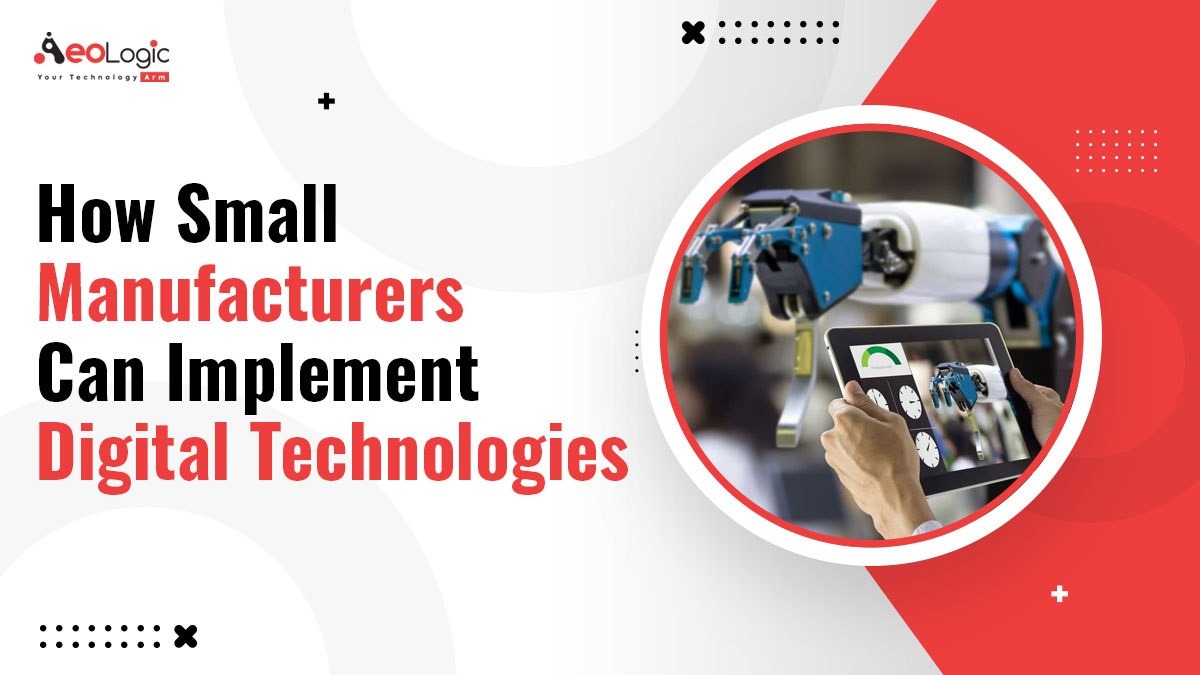The use of digital technologies in smart manufacturing has been increasing year by year, the reason behind this is the exponential growth manufacturers have witnessed with the digital transformation. In this blog, you will learn how digital manufacturing can be achieved by small manufacturers.
So let’s get started!
Need For Digital Technologies In Smart Manufacturing For Small Manufacturers
As per reports, 20 percent of small businesses fail in their first year and 50 percent of small businesses fail within the first five years. Running a small business is not easy, as many people around the world think. The owner of the small business needs to wear so many hats at the same time. Setting up the businesses, running day-to-day operations, hiring employees, running payrolls, doing taxes, and handling bookkeeping are some work that small businesses need to perform. Hence, this is the reason why so many small business owners burn out with administrative work. Thus, implementing digital technologies in smart manufacturing is one we suggest. Digital transformation of the business will accelerate your growth.
Brief About Digital Transformation
Digital transformation is changing the game for business owners across various industries, a future full of smart connected products, assets, and operations offers huge potential for productivity gains, cost savings, and sustainable profitable growth.
Along with this, there has also been increasing in the new customer expectations such as mass customization, product as a service, and customer of customer requirements creating the need to embrace digital technologies across the various industries. All these factors played a vital role in implementing digital transformation in businesses.
Many industries are reaping plenty of benefits from it, and the manufacturing industry is one on the list too. Digital manufacturing can be applied by both big and small manufacturers
What Is Digital Manufacturing?
The definition of this is an integrated approach to manufacturing that is centered around a computer system called digital manufacturing.
The transition to digital manufacturing has become more popular with the rise in the quantity and quality of computer systems manufacturing plants. Digital manufacturing is a way to attract skilled workers hunting for technologically blessed environments, delivering the correct information at the right time.
In the past few decades, the industrial paradigm has undergone revolutions that have changed the industries’ functions. This has made us to witness the next revolution. Machines have turned into cyber-physical systems capable of communicating and cooperating with each other. This evolution of technology enables humans in real-time to completely disrupt manufacturing processes traditionally.
Digital Technologies In Smart Manufacturing Industry
Digital technologies in smart manufacturing demand innovations as operations and information technology converge. It can be broken down into three main areas’ that is; product life cycles, smart factory, and value chain management. All of these relate to various aspects of manufacturing operations, from product innovation and design to the enhancement of production lines and the optimization of resources, to increase the efficiency of products and customer satisfaction.
Rapidly changing consumer trends have made it necessary for businesses to reduce the innovation cycle to bring out cutting-edge products. This is done in the most cost-effective manner, keeping in mind individual consumers’ needs.
Digital Enterprise
While the internet of things (IoT) enables hyper-connectivity, there are glaring questions on the utilization of data, security, and integrity of the organization and the ROI.
The answer to this digital transformation is connected devices in the enterprise. This helps the manufacturers realize the ultimate goal of designing, sourcing, selling, and even producing from anywhere. The following are steps involved in this transformation:
1) The first step is to bring data to a standard form and shape and have a single source of the truth of the data across the entire value chain.
2) The next step includes vertical, horizontal, and engineering integration;
a) Vertical Integration:
To achieve a seamless and agile plant to enterprise connectivity, businesses need to establish a real-time collaborative work environment enabled by convergence across various areas. Connecting shop floor systems with business and execution systems helps achieve vertical integration. (https://navalpost.com/) Hence, the aim here is to make all relevant data available to the decision-makers in real-time for effective enterprise resource planning and transformation.
b)Horizontal Integration:
Connectivity across the value chain is all about connecting the manufacturing plant with the larger ecosystem. Thus, seamless interaction among all these entities will give the manufacturers a transparent and holistic view of product planning and development all the way up to plant operations and logistics.
c) Engineering integration:
From design to manufacture is all about having a holistic digital enterprise platform, that covers product design, planning, manufacturing execution services, and customer experience. This enables the manufacturers to take a step closer to realizing the potential of a connected digital enterprise.
3) Final step for the manufacturers to implement digital technology is by integrating manufacturing analytics. Since, the integration of manufacturing analytics will enable the manufacturers to move from reactive to prescriptive workflows.
Implementing digital technologies in smart manufacturing requires a phased approach to implementation and with each phase of implementation, the benefits increase manifold with the numbers matching the optimism!
Conclusion:
To sum up, the implementation of digital technologies in smart manufacturing will give the manufacturers a holistic approach to running the business. Indeed, this will result in boosting productivity and enhancing the efficiency of work. Now, please these questions, are you a small manufacturer? Are you looking to accelerate your manufacturing business? And do you feel like automating your work? If the answer is yes, then you should implement digital manufacturing now.
For any queries, please feel free to contact us at: support@aeologic.com





